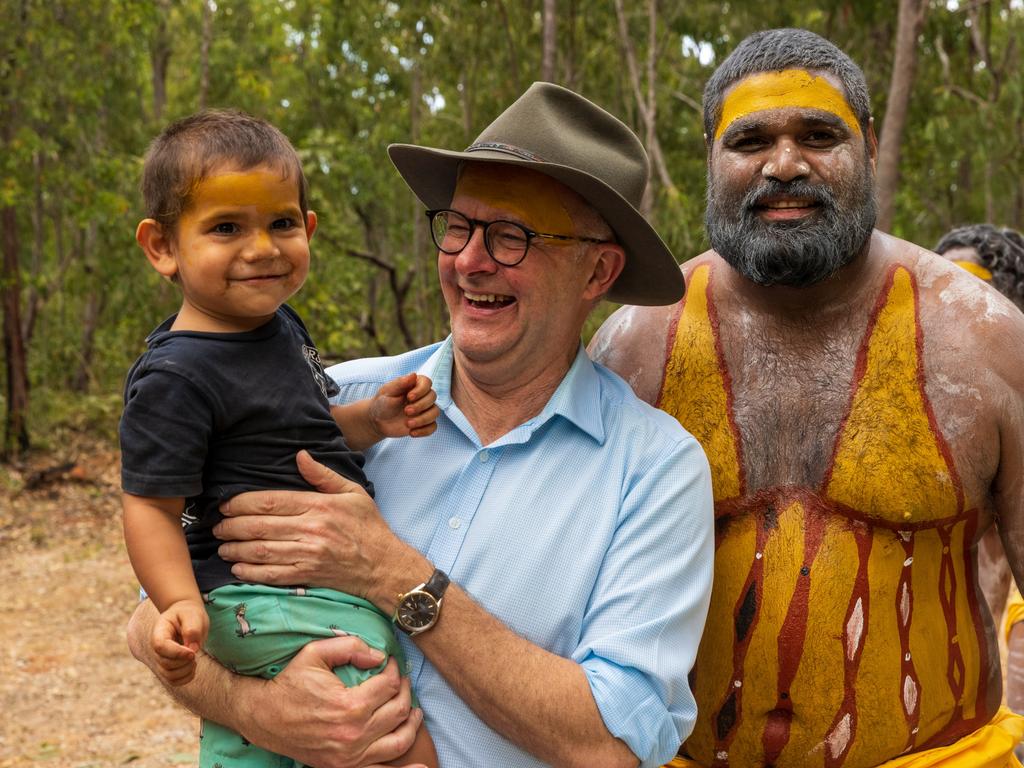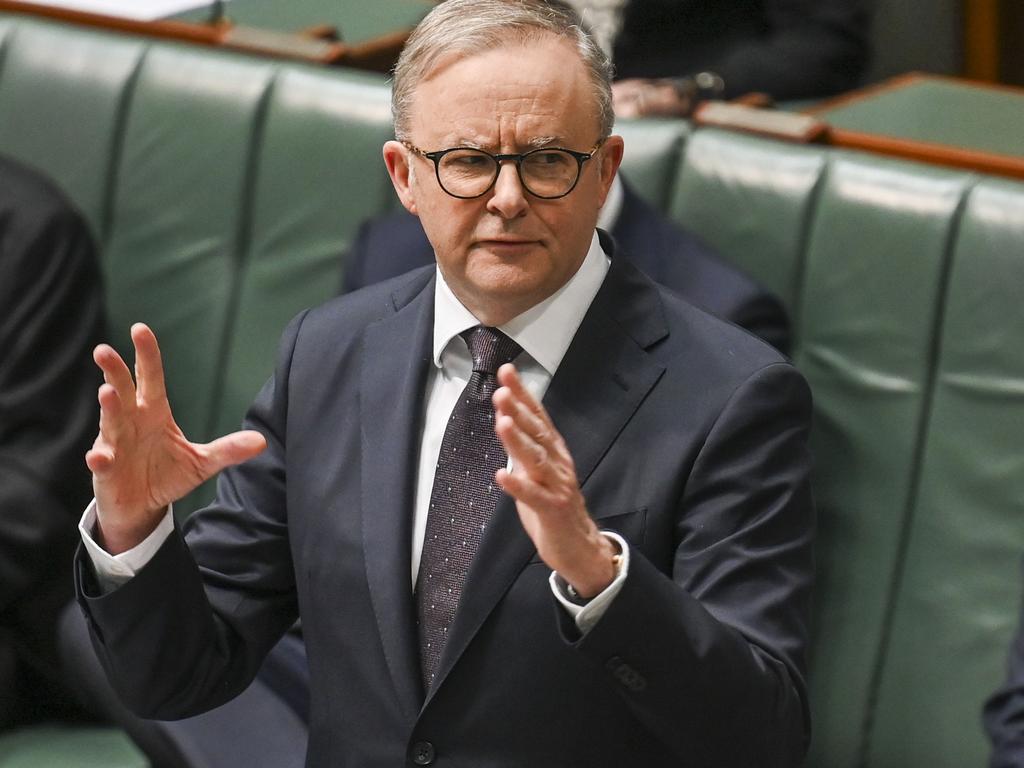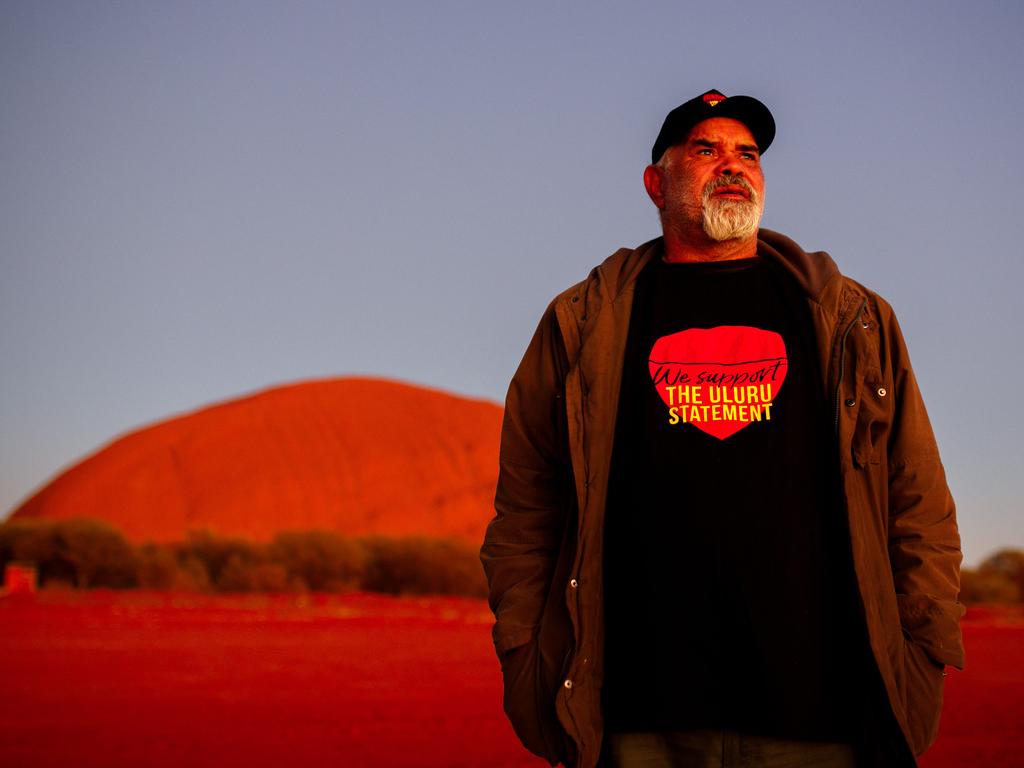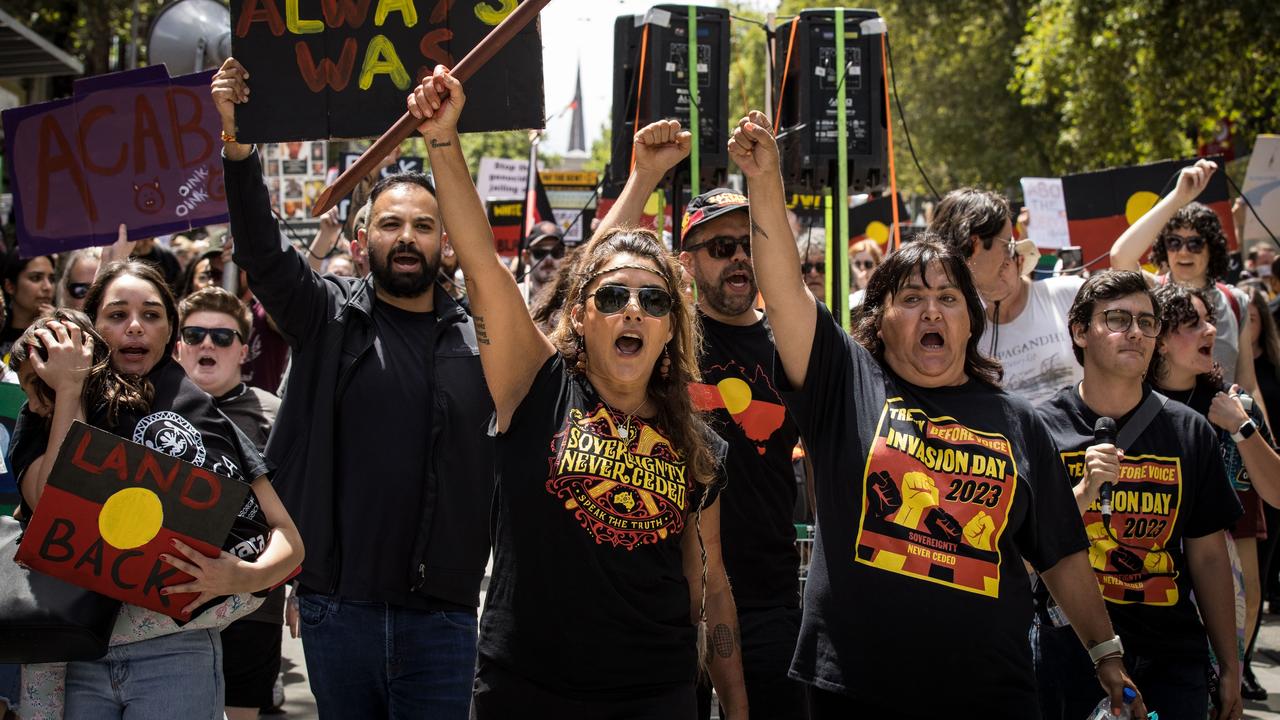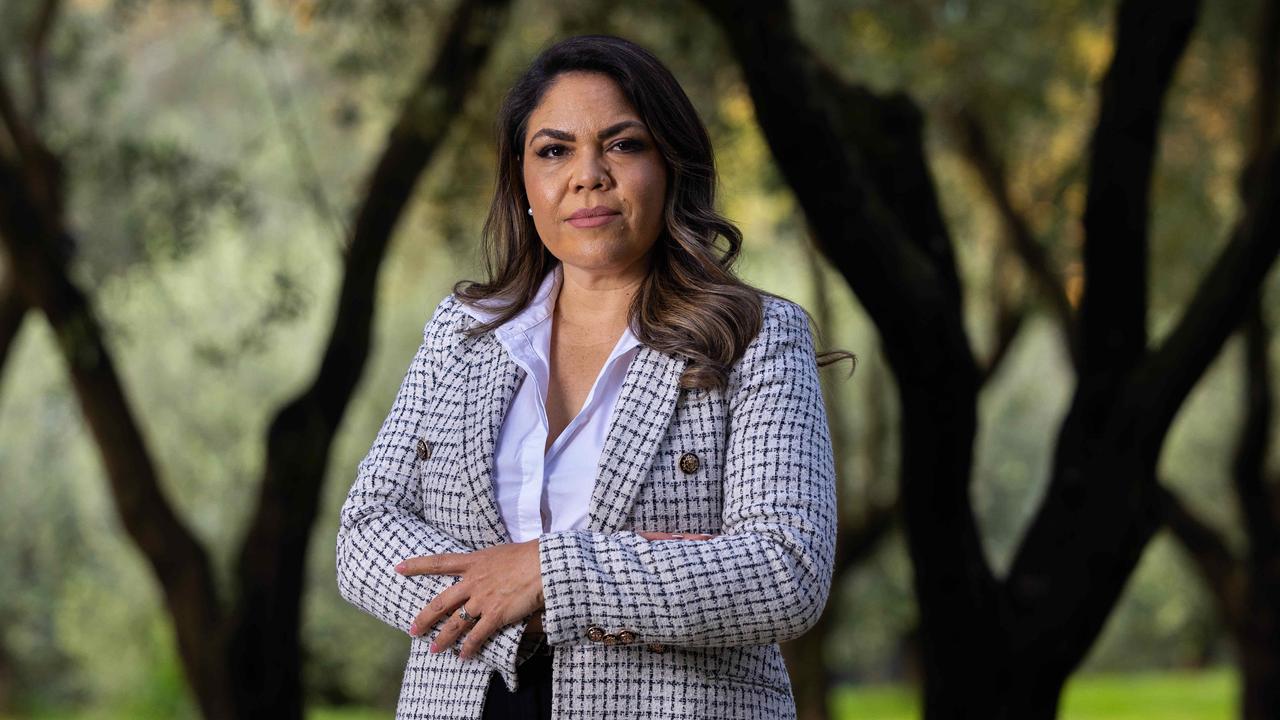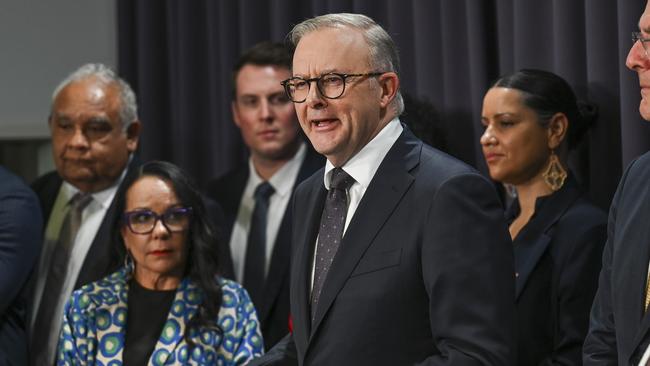
It is now official and formally ratified: Australia will hold a referendum on inserting an Indigenous voice to parliament and executive government into the Constitution.
It is also official and formal that there has been no compromise or real change from Anthony Albanese, Labor and the leaders of the Yes campaign in the year-long preparation of the wording and intent of the referendum.
The Prime Minister welcomed the Senate vote and described it as an opportunity for reconciliation with and recognition of Indigenous Australians.
“This is your opportunity,” Albanese told The Australian people more than a year after he put the referendum as his top priority on election night.
With Linda Burney declaring: “Today the conversation begins”.
But be ready for a tough, unpredictable and divisive debate.
It is already all of these things and the rolling out of tens of millions in advertising is not going to change the tone of the arguments or the political strategies of both sides.
All suggestions of any change or compromise, including from supporters of the voice to parliament, to increase the passage of the referendum.
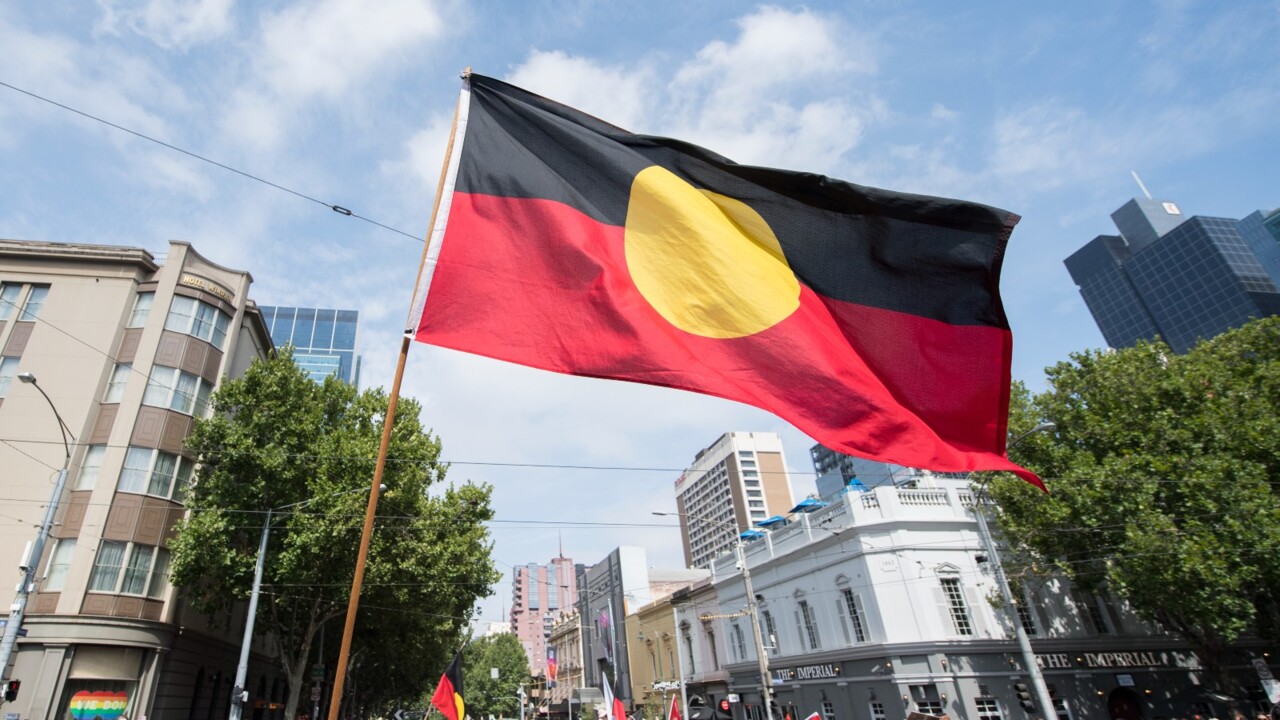
While Labor senators and those in the public galleries stood to applaud the passage of the referendum bill on Monday morning – putting it alongside the historic Senate votes on the Mabo and Wik legislation – there was no unanimous view and the exploitation of the unknown will continue.
Starting from a strong position in public polling with the benefit of good will towards indigenous Australians the Yes campaign has lost substantial ground in the past months as strong sympathy shifts to strong antipathy and growing uncertainty.
The public polling shows the two sides essentially equal with the momentum with the No campaign despite public declarations of support from corporate, business, sporting, academic, union and religious leaders, as well as social media campaigns and “town hall” forums.
Yes supporters have argued that voting for the referendum would be gracious, right and fair while No supporters argue the voice will be another, undefined layer of bureaucracy with a right to intervene in all government decisions.
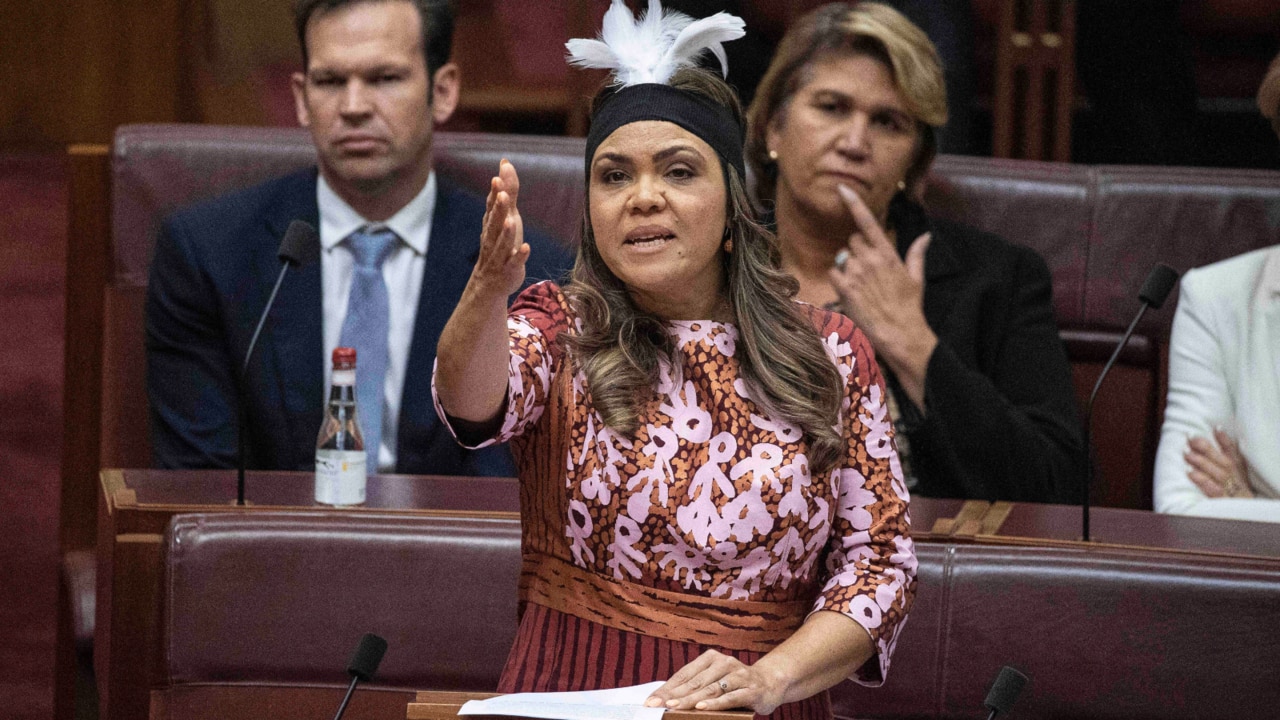
Albanese argues that the slipping support is not indicative of how people will think of the referendum because like a general election they will only really switch on during the 33 days of the campaign itself in the last quarter of the year – essentially October.
Although, he admits constitutional change is incredibly difficult and he will be making history to win a referendum without bipartisan support.
“It is not a voice from Canberra,” he said.
“Now it is up to the Australian people.”
But, he said “we will put our case” and “it’s hard to win”, especially pointing to “misinformation” despite pledging to run a positive campaign.
Misinformation and disinformation claims are central to the Yes campaign yet what can be expected: when there is a vacuum of information it will be filled by whatever is offered form anyone.
Typical of the differences, even among indigenous Australians, were the contributions in the final debate between Malarndirri McCarthy and Jacinta Nampijinpa Price: both indigenous women, both Senators, both representatives of the Northern Territory and both with opposing views.
Senator Malarndirri McCarthy, an Indigenous woman representing the Northern Territory, said she was a little bit concerned by the tone of the debate and asked both the Yes and No sides to be respectful of each other.
“This is a critical moment in our country’s history, it is the right thing to do,” McCarthy, a Labor Senator said.
“Can I say how incredibly proud I am to be able to stand and speak for the voice and the importance of being able to go to a referendum and say Yes for our country, Yes for a better future, Yes for First Nations people to be able to make decisions in terms of advising the parliament and executive,” she said.
But Coalition senator Jacinta Nampijinpa Price said people should ask themselves: “If they truly believe that this is the answer? Will an extra layer of bureaucracy and red tape do anything more to help Indigenous Australians? Will a Canberra body of academic experts do anything more to close the gap … (or) bring us closer together?”
She homed in on No campaigns’ motto of “if you don’t know vote No” with: “The Prime Minister wants us to blindly trust him to allow his blank cheque – he cannot guarantee anything”.
Having set a path which eschewed compromise, didn’t really seek bipartisan support and is determined not to provide any detail of the workings of the voice until after the referendum Albanese faces a tougher task than it need to be.
More Coverage
Read related topics:Indigenous Voice To Parliament


